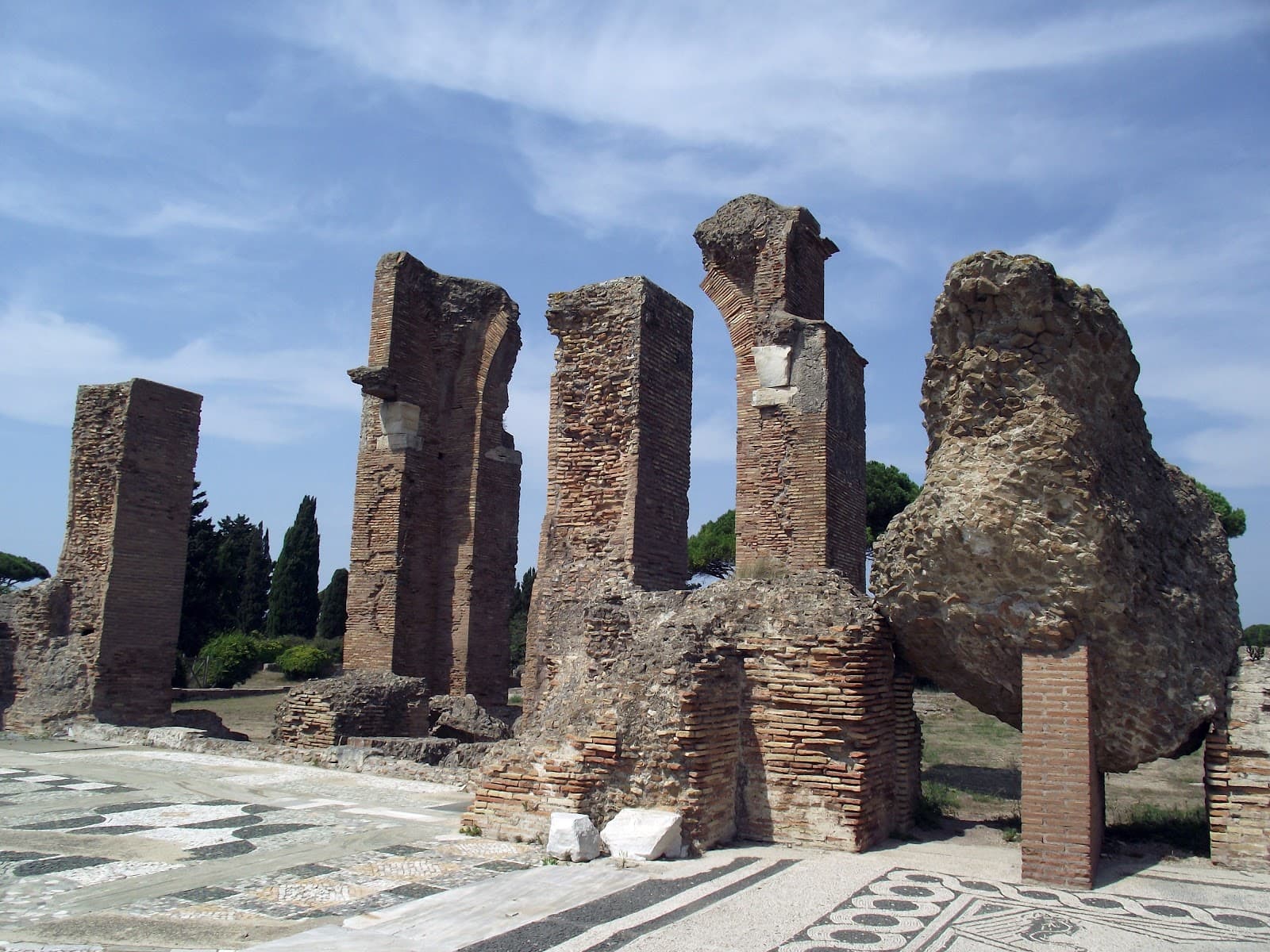
Baths of Porta Marina
Explore the impressive Roman thermal complex of Baths of Porta Marina, famed for its intricate athlete and marine mosaics.
Highlights
Must-see attractions

Social
From TikTok & Reddit
Best Time
Fewer crowds, better photos

Baths of Porta Marina
Best Time
Fewer crowds, better photos
Highlights
Must-see attractions
Explore the impressive Roman thermal complex of Baths of Porta Marina, famed for its intricate athlete and marine mosaics.
"The floor mosaics, depicting award-winning athletes and marine scenes, are noteworthy."
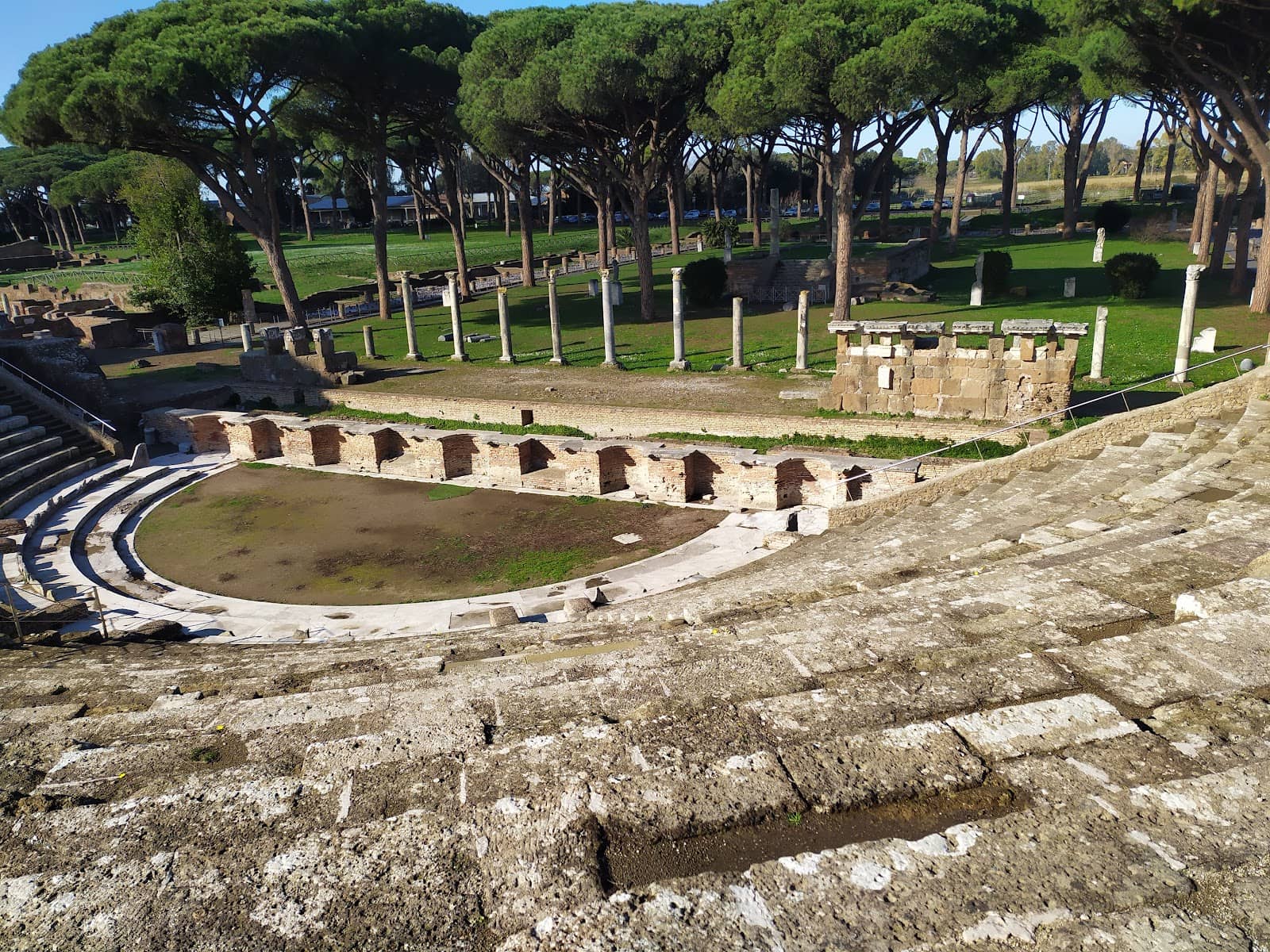
🚶♀️ Plan Your Exit
The exit might not be where you entered. Keep this in mind for your onward journey.
🧐 Look for Details
The floor mosaics are incredibly detailed. Take your time to observe the artistry.
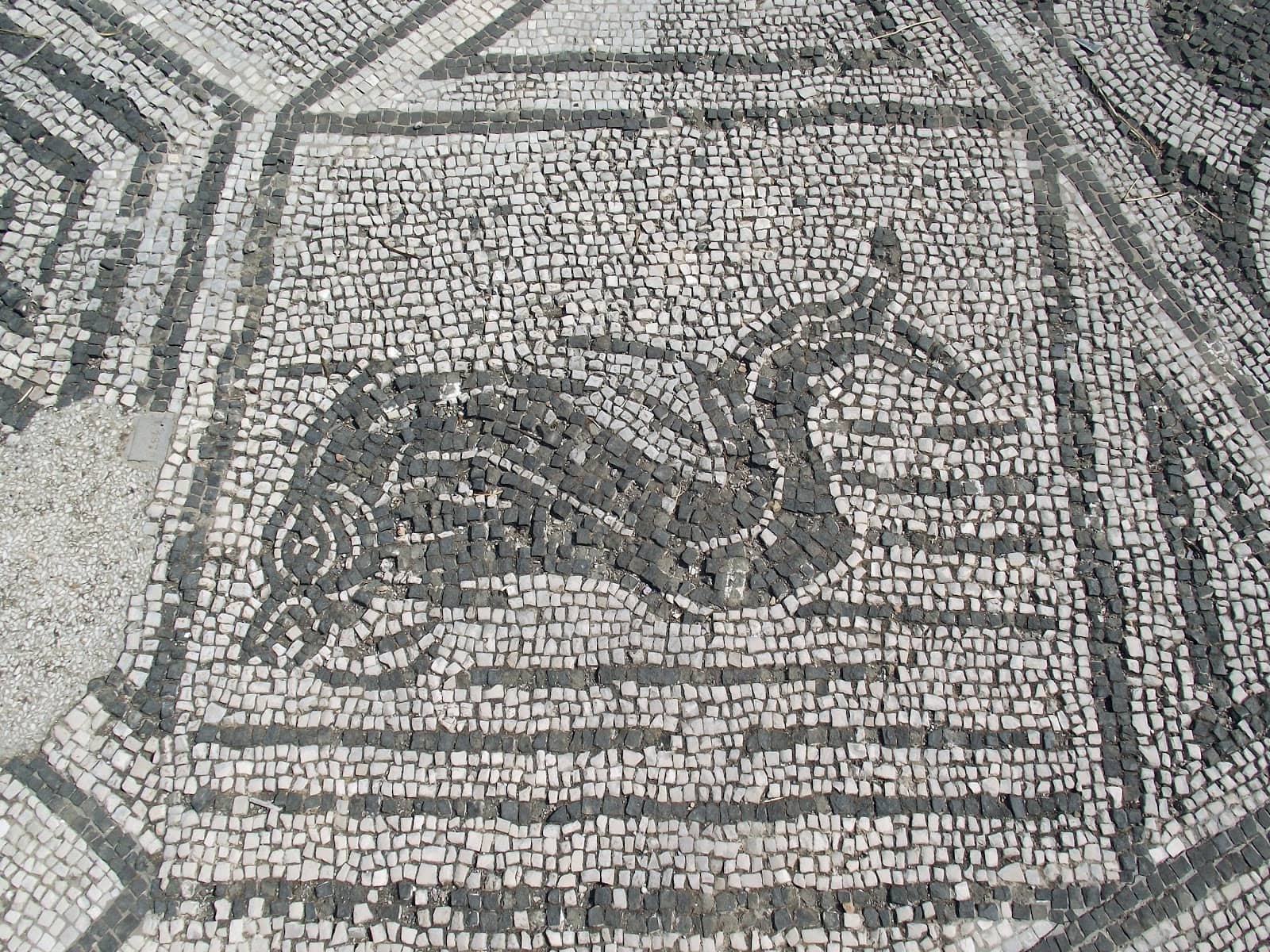
Highlights
Discover the most iconic attractions and experiences

Apodyterium Mosaic
Changing Room
Marvel at the stunning black and white mosaic depicting athletes in the ancient changing room.

Frigidarium Mosaics
Cold Baths
Admire the vibrant polychrome mosaic floor and the unique marine-themed mosaic.
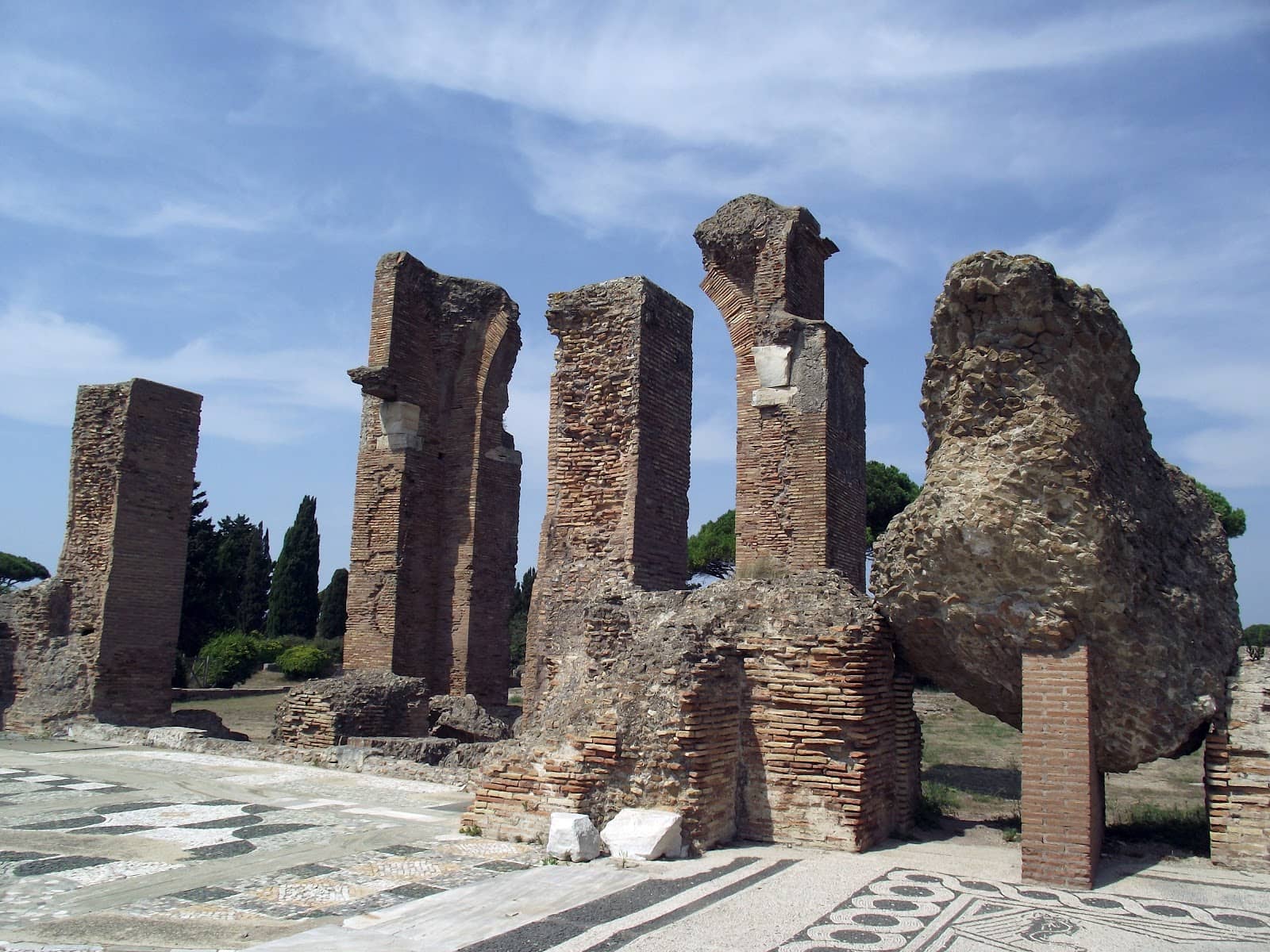
Colonnaded Courtyard
Gymnasium Area
Imagine the bustling activity in this large courtyard, once surrounded by a colonnade for exercise.
Plans like a pro.
Thinks like you
Planning Your Visit
Timing is Key for a Peaceful Visit
Understand the Layout
Best Times
Insider Tips
from TikTok, Instagram & Reddit
🚶♀️ Plan Your Exit
The exit might not be where you entered. Keep this in mind for your onward journey.
🧐 Look for Details
The floor mosaics are incredibly detailed. Take your time to observe the artistry.
👟 Comfortable Shoes
You'll be doing a lot of walking on uneven ancient surfaces. Wear sturdy, comfortable footwear.
Tips
from all over the internet
🚶♀️ Plan Your Exit
The exit might not be where you entered. Keep this in mind for your onward journey.
🧐 Look for Details
The floor mosaics are incredibly detailed. Take your time to observe the artistry.
👟 Comfortable Shoes
You'll be doing a lot of walking on uneven ancient surfaces. Wear sturdy, comfortable footwear.
What Travellers Say
Reviews Summary
Visitors find the Baths of Porta Marina to be a well-preserved and historically significant part of Ostia Antica. The intricate floor mosaics, particularly the depictions of athletes and marine life, are consistently praised for their beauty and detail. While the site is extensive, some visitors note that the exit route can be a bit confusing.
"The tour is nice but you have to go back than to the entrance. I hoped there will be some exit because there is a gate."
Barbora Doležalová
"No crowds."
Karl Enright
"The Terme della Marciana, also known as the Terme di Porta Marina, were built in the Trajan era and owe their name to the portrait of Marciana, sister of the emperor Trajan, found inside them.
A public thermal complex of this size takes time to build, so much so that its construction was almost certainly completed in the post-Hadrianic era. On the other hand, Trajan, Hadrian and Antoninus Pius were the emperors who spent the most on the urban modernization of Ostia.
In the place it is possible to see a large courtyard surrounded by a colonnade with a gymnasium function and a thermal sector located on a raised floor. Looking to the left at the remains of the apsidal pool, added in the 3rd century AD, it is possible to see the apodytherium (the changing room), where the floor is covered with a wonderful black and white mosaic depicting athletes.
The room in front of the apsidal pool was instead the frigidarium (cold baths): its floor is covered with a polychrome mosaic. On its right side there is an interesting mosaic with black and white tiles with a marine theme.
All the floor decorations have details and particulars to observe carefully.
The thermal complex remained in operation until the 5th century."
Maurizio Faraone
What People Like
What People Dislike
Frequently Asked Questions
🚇 🗺️ Getting There
The Baths of Porta Marina are located within the archaeological park of Ostia Antica. You can reach Ostia Antica by taking the Roma-Lido train from Piramide station in Rome. From the Ostia Antica station, it's a short walk to the park entrance. Once inside the park, follow the signs for the Baths of Porta Marina, which are one of the major complexes.
Yes, there is parking available near the entrance to the Ostia Antica archaeological park. From the parking area, you will need to walk to the park entrance and then navigate to the Baths of Porta Marina within the site.
Absolutely! The most common way is the Roma-Lido train from Rome's Piramide station (connected to the Metro B line). The journey takes about 30 minutes. The Ostia Antica stop is a short walk from the archaeological site.
🎫 🎫 Tickets & Entry
No, the Baths of Porta Marina are part of the main Ostia Antica archaeological park. Your general admission ticket to Ostia Antica grants you access to all its structures, including the Baths.
Opening hours for Ostia Antica typically vary by season. It's best to check the official website for the most up-to-date information, as hours can change. The Baths are accessible during the park's operating hours.
Yes, booking your tickets for Ostia Antica online in advance is highly recommended, especially during peak season. This helps you skip the ticket lines and guarantees entry.
Guided tours are often available for Ostia Antica, which would include a visit to the Baths of Porta Marina. You can inquire about these at the visitor center or book them in advance through official channels.
🎫 🧭 Onsite Experience
While the Baths are a significant part of Ostia Antica, they are one of many structures. To explore the Baths thoroughly and appreciate their mosaics, allow at least 30-45 minutes. The entire Ostia Antica park usually requires 3-4 hours.
Restrooms and water fountains are generally available within the Ostia Antica park, usually located near the entrance or central areas. It's advisable to carry your own water bottle, especially during warmer months.
The archaeological park of Ostia Antica, including the Baths of Porta Marina, has uneven terrain and ancient ruins, which can pose challenges for visitors with mobility issues. Some areas may be difficult to navigate.
Wander through the different sections: the large courtyard, the changing room (apodyterium) with its athlete mosaic, and the cold baths (frigidarium) with its marine mosaics. Imagine the daily life of ancient Romans here.
Yes, photography is generally allowed within the Ostia Antica park, including the Baths of Porta Marina. However, always be respectful of the ancient structures and other visitors. Tripods might require special permission.
📸 📸 Photography
Focus on the intricate floor mosaics in the apodyterium and frigidarium. The colonnaded courtyard also offers great perspectives, especially when capturing the scale of the complex.
Early morning or late afternoon light provides softer shadows and a more atmospheric glow, ideal for photographing the mosaics and ruins. Avoid midday sun for more dramatic shots.
While general photography is permitted, large professional equipment like tripods or drones may require special permits. Check with the park authorities beforehand if you plan to use such equipment.
For Different Travelers
Tailored advice for your travel style
👨👩👧 Families with Kids
Tip: Encourage children to spot different figures in the mosaics, especially the marine life. Comfortable shoes are a must for everyone, as the terrain can be uneven. Consider bringing snacks and water, as facilities within the park can be limited.
🏛️ History Buffs
Focus on: The transition from Trajanic to Hadrianic construction, the function of the different rooms (apodyterium, frigidarium), and the significance of the marine-themed mosaics in relation to Ostia's port status. The site's history is a microcosm of Ostia's own rise and eventual decline.
Deep Dives
In-depth insights and expert knowledge
The History and Construction of the Baths
The complex was designed to serve the bustling port city of Ostia for centuries, remaining operational until the 5th century AD. This longevity is a testament to the enduring vitality of the neighborhood and the Roman commitment to public health and leisure. The baths were strategically located near the coast, a reminder of Ostia's historical connection to the Tiber River before its course shifted.
Architecturally, the Baths of Porta Marina featured a large courtyard surrounded by a colonnade, serving as a gymnasium or palaestra. Adjacent to this was the thermal sector, often situated on a raised floor. The evolution of the complex is evident, with additions like the apsidal pool in the 3rd century AD, showcasing ongoing modifications and expansions to meet the needs of the populace over time.
Discovering the Exquisite Mosaics
Adjacent to the apodyterium lies the frigidarium, or cold baths. Its floor is adorned with a polychrome mosaic, showcasing a richer palette of colors. Adding to the visual appeal is an adjacent room featuring an interesting black and white mosaic with a marine theme, complete with depictions of sea creatures and aquatic elements. These mosaics are not merely decorative; they are intricate works of art that provide valuable insights into Roman craftsmanship and artistic sensibilities.
These floor decorations are characterized by their fine details and require careful observation to fully appreciate their complexity. The marine theme, in particular, connects the baths to Ostia's identity as a vital port city. The preservation of these mosaics over centuries is a significant archaeological achievement, allowing modern visitors to connect directly with the aesthetic and cultural values of ancient Rome.
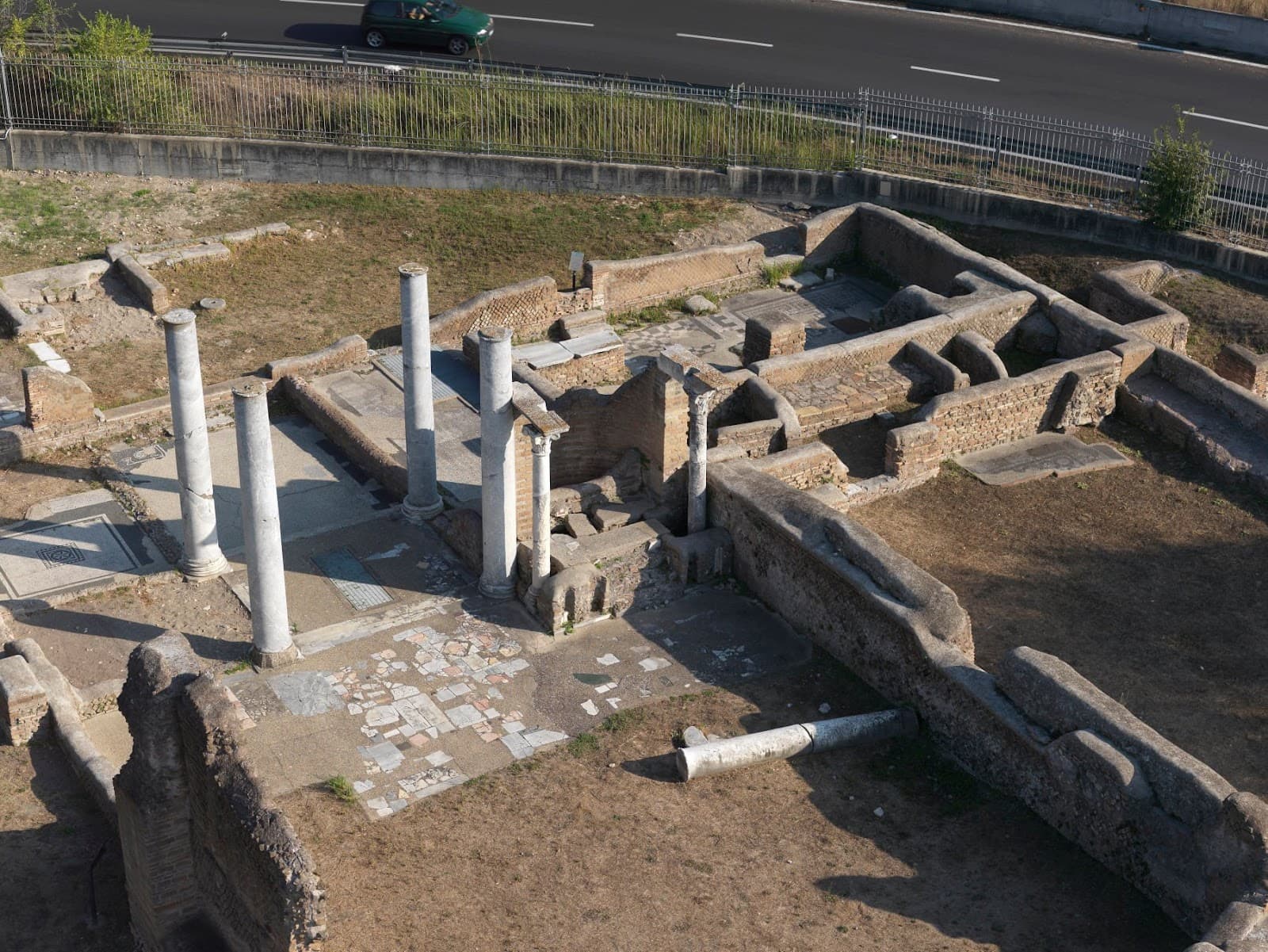
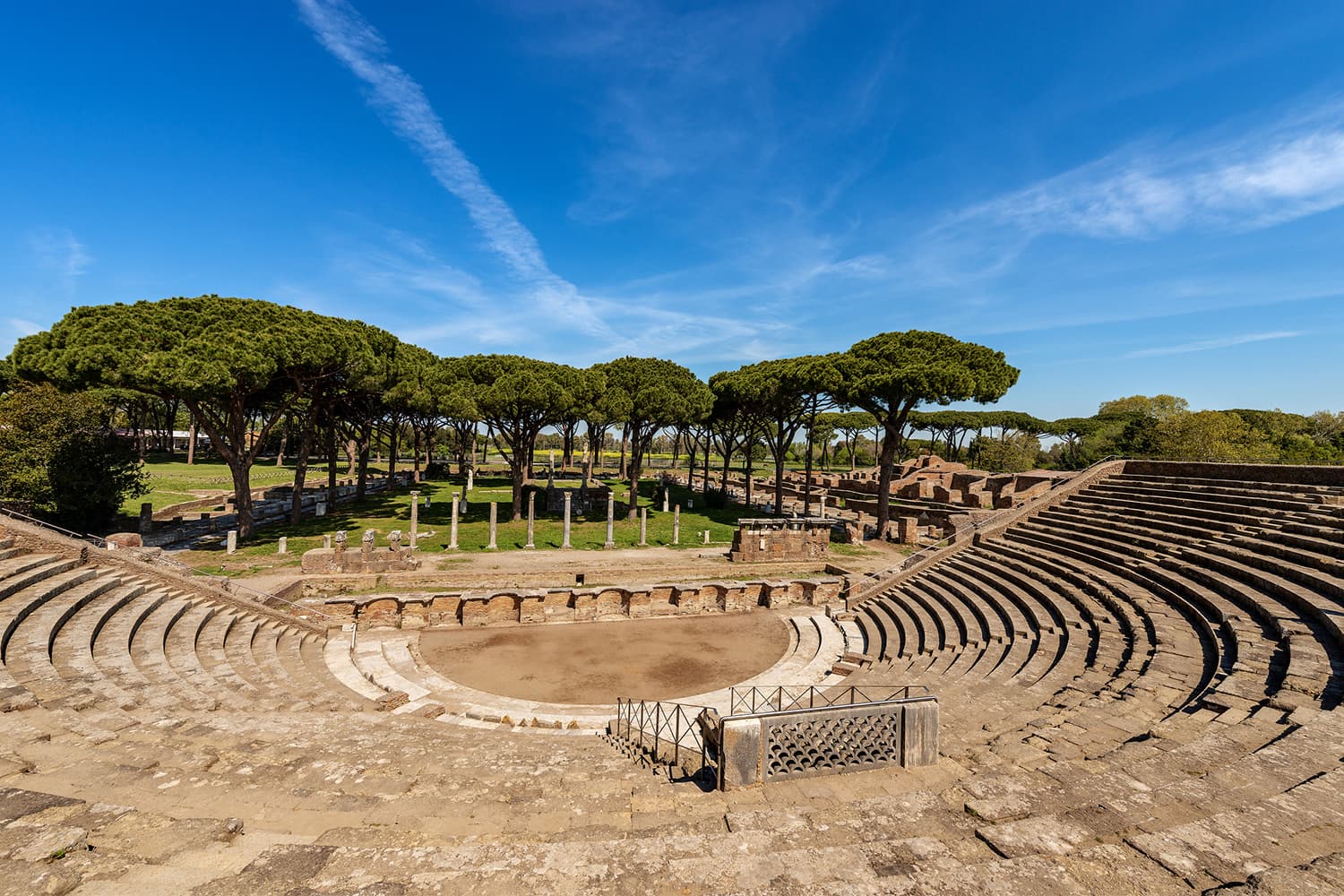
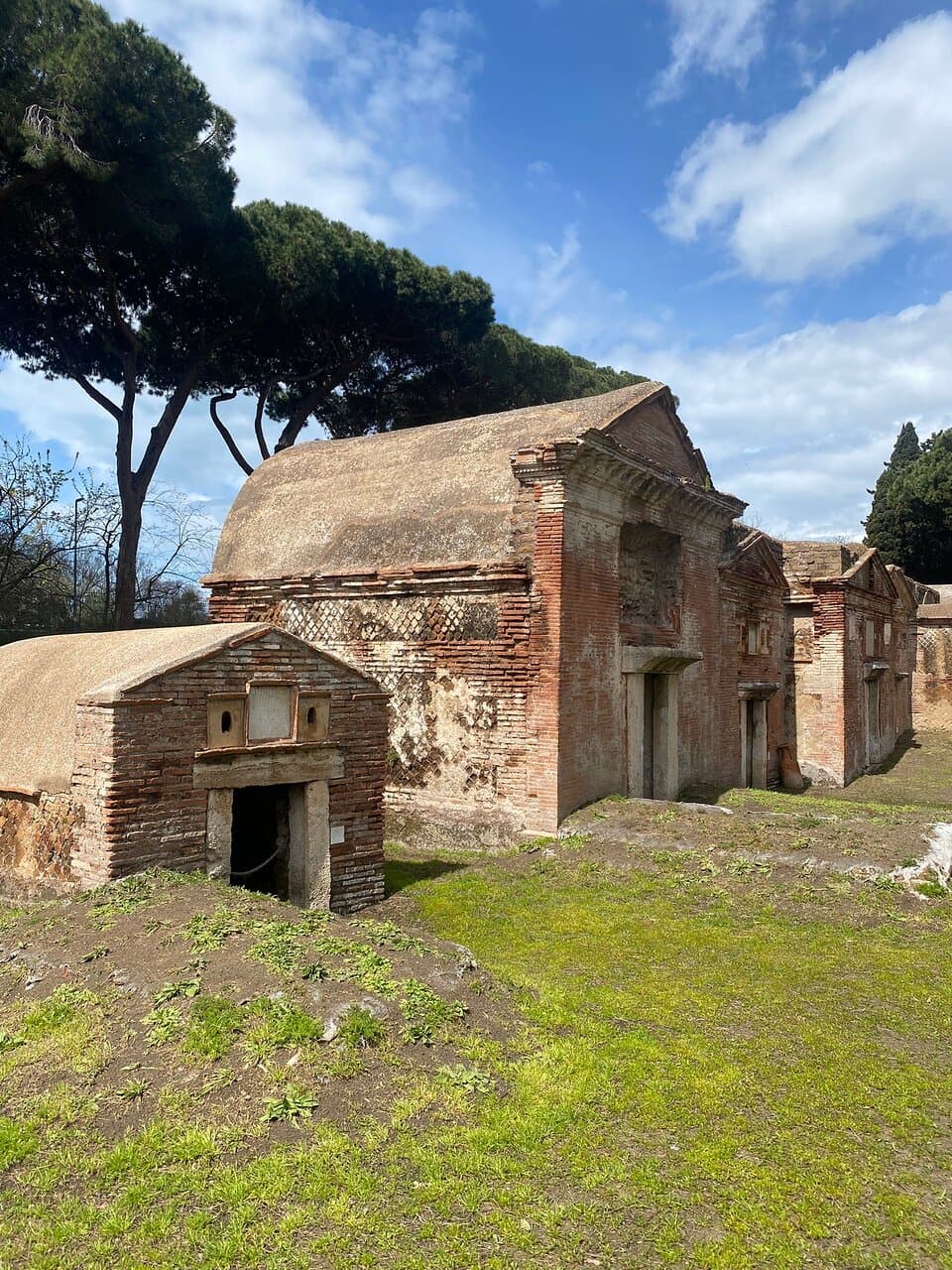
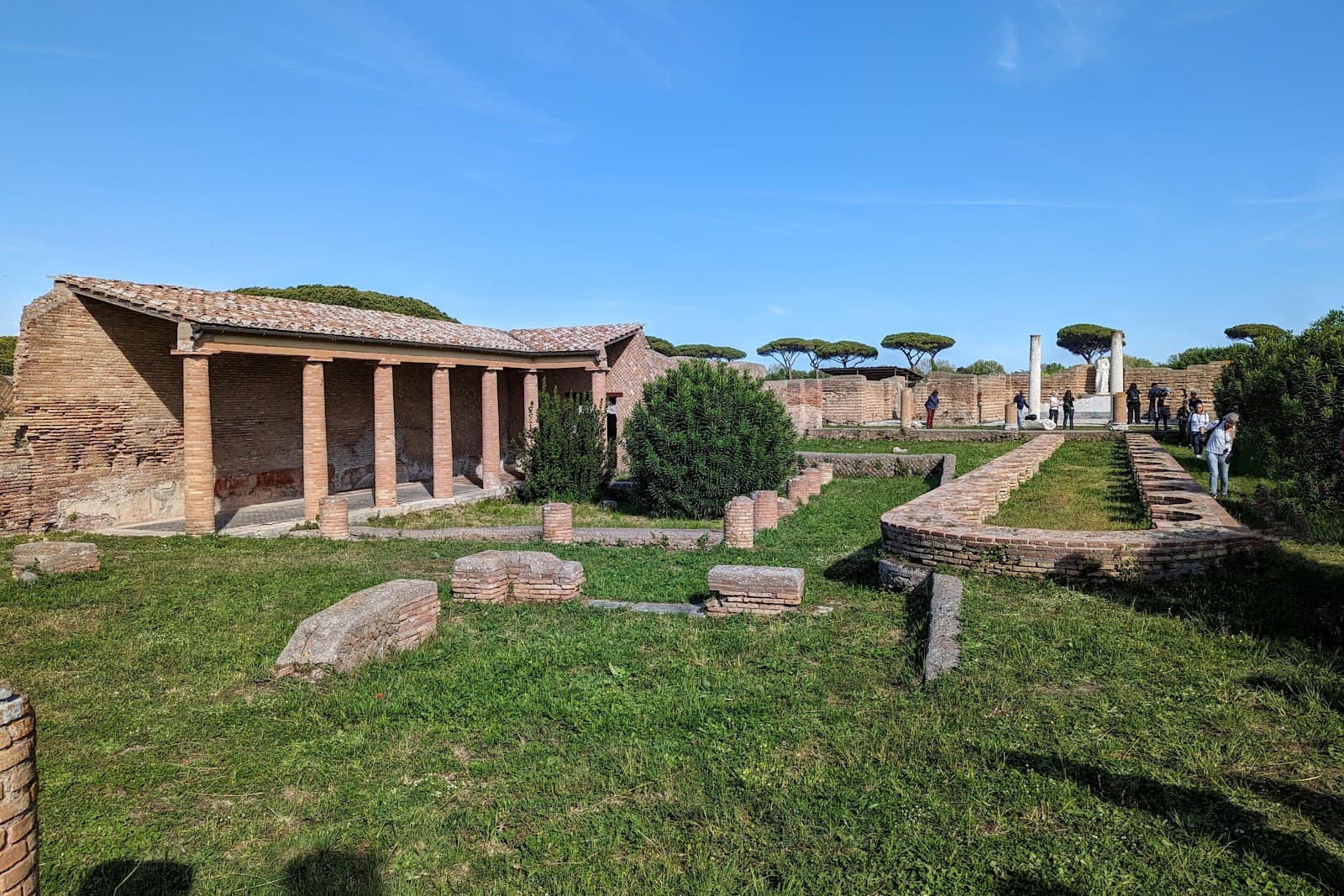

Social
from TikTok, Instagram & Reddit